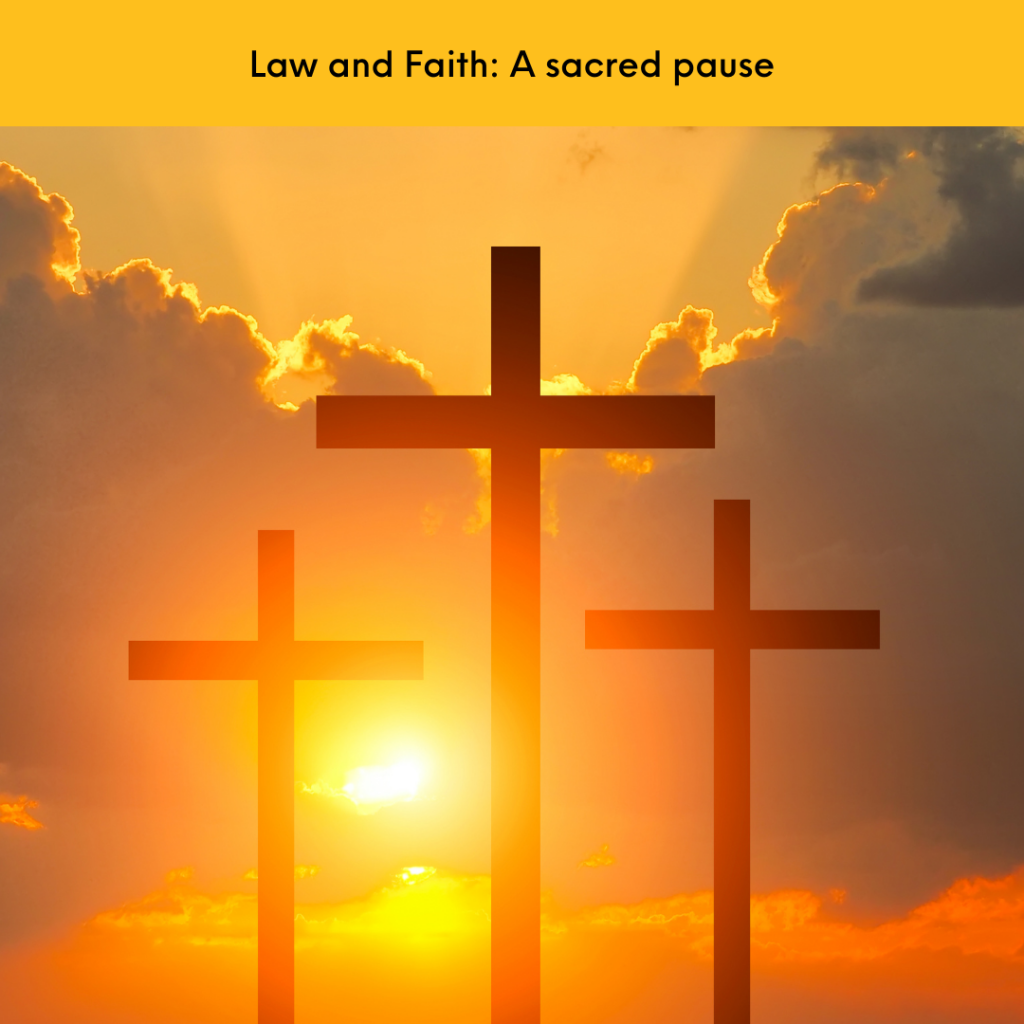
Published 18 April 2025
Each year, Holy Week descends upon our nation with a quiet dignity. Offices shutter their doors, businesses scale back operations, and even the most restless among us find ourselves drawn—if only momentarily—into stillness. It is a sacred pause, observed not merely out of custom, but out of reverence. It is also a time when law and faith converge in meaningful, if often understated, ways.
The law, as it should, respects this solemnity. Maundy Thursday and Good Friday are declared official holidays—recognized not merely for tradition’s sake, but as a manifestation of the constitutional right to religious freedom. These holidays are not just reprieves from work—they are legal affirmations of our shared spiritual rhythm as a people.
But Holy Week is not only a break from labor or litigation. It is a mirror—one that compels us to examine ourselves, and by extension, our institutions. The Passion narrative, at its core, is also a legal one: Jesus is betrayed, arrested, denied due process, and condemned by a tribunal driven not by truth but by political convenience. It is a sobering account of how law, when stripped of justice, can become an instrument of cruelty. It prompts us to ask—are we, as stewards of the legal order, always mindful of the human cost of our decisions?
There is an urgent need to revisit this question. We who practice law wield great influence. We draft arguments, issue rulings, negotiate settlements—but beyond the technical, we are called to discern the moral. The Gospel challenges us: Are we Pilate, washing our hands to absolve ourselves of responsibility? Are we the crowd, swept by public opinion? Or are we silent witnesses, allowing injustice to unfold unopposed?
This season invites us to rediscover the heart of our vocation. Law is not merely about order or control. At its highest form, it is about justice, mercy, and restoration. In the frenzy of deadlines and deliverables, we risk losing sight of this truth. Holy Week interrupts that motion. It invites us to slow down—not in inertia, but in introspection.
Even at the practical level, the observance of Holy Week engages the law. Employers are reminded of their obligations under the Labor Code. Local governments must ensure safety and order in religious gatherings. Law enforcement is called to strike the delicate balance between maintaining peace and respecting sacred traditions. There is a legal dimension to every procession, every pilgrimage, every act of public worship. And it must be approached not with perfunctory compliance, but with sensitivity and respect.
For us in the legal profession, Holy Week is not merely a time to pause from practice. It is a time to reexamine purpose. Are we merely legal technicians, or are we, in our own way, ministers of justice? Do we champion fairness, or merely process? Do we seek truth, or settle for expedience?
May this sacred week renew in us a deeper sense of duty—not just to the law, but to the people it exists to serve. May we find in the silence of Good Friday the courage to speak up for what is right. And may the hope of Easter Sunday remind us that even in a world marred by injustice, light will prevail.

